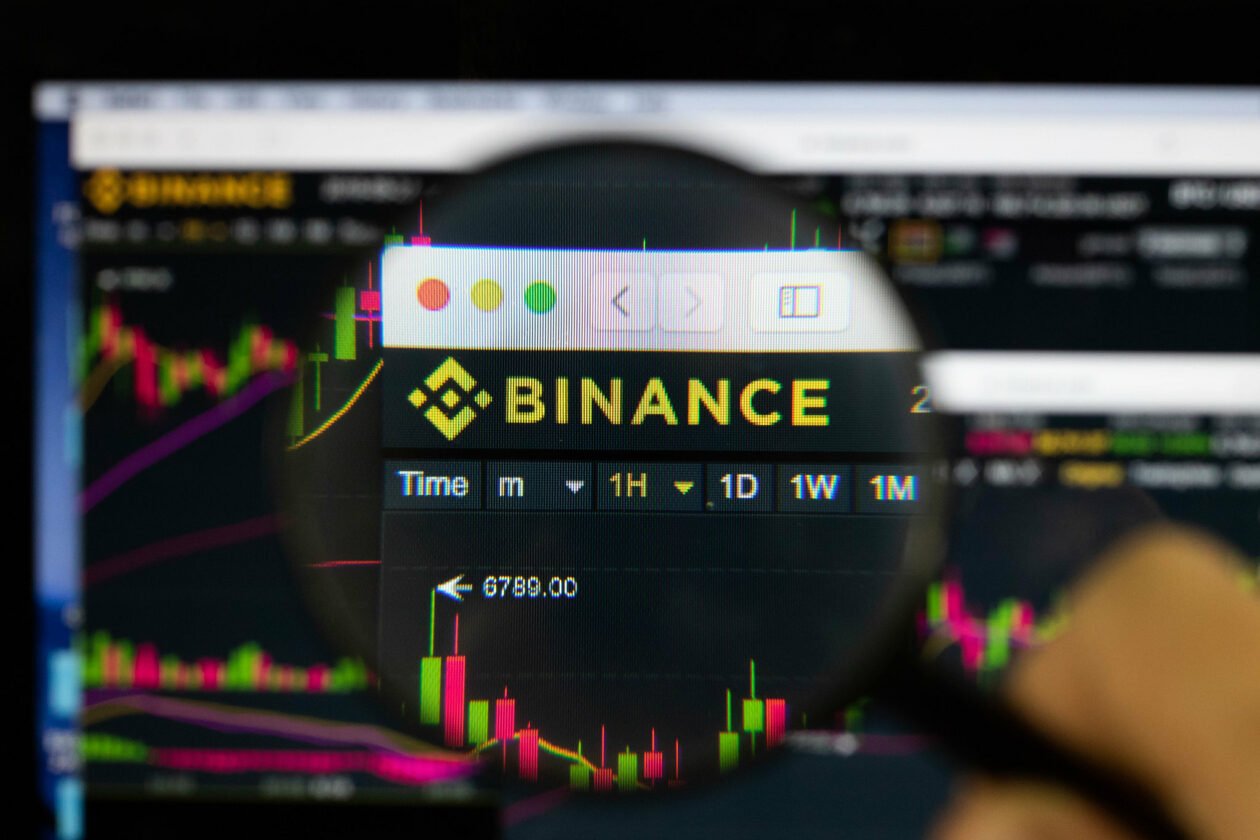The cryptocurrency industry faced another jolt as the U.S. Securities and Exchange Commission (SEC) launched its latest enforcement action against Binance, the world’s largest cryptocurrency exchange.
On Monday, the SEC filed a lawsuit in the District Court for the District of Columbia targeting Binance, its U.S. branch, and Chief Executive Officer Changpeng Zhao with charges related to securities violations. Forkast asked industry experts to weigh in on what this means for the crypto industry.
Binance faces 13 charges in the lawsuit, including the unregistered offer and sale of the BNB and BUSD tokens and unregistered activity related to its Simple Earn and BNB Vault products and its staking program. The SEC also alleged that Binance failed to register Binance.com and BAM Trading, the operator of Binance.US, as an exchange or a broker-dealer clearing agency.
Binance has denied the SEC’s allegations.
“The SEC’s actions here appear to be part of a rushed effort to claim jurisdictional ground from other regulators — and investors do not appear to be the SEC’s priority,” said a Binance spokesperson.
The lawsuit comes amidst increased scrutiny for crypto exchanges in the U.S., three months after the Commodity Futures Trading Commission sued Binance and Zhao for allegedly violating derivatives rules.
SEC’s bear call
Ben Caselin, Vice President, MaskEX: “The effects on the markets can be severe and result in a decrease in trade volume and added unpredictably. U.S. institutions such as the SEC are bearish on the crypto sector; as such, this sector is bearish on the USA. While investor protection is important and oft-cited as the primary motivation driving the SEC, the ongoing refusal to provide clarity coupled with regulation-through-enforcement actions are arguably attempts to maintain order.”
Rajagopal Menon, Vice President, WazirX: “These regulatory actions can have both short-term challenges and long-term effects on the industry. While they could create uncertainty and potentially impact market sentiment in the short term, they are aimed at protecting investors and ensuring compliance with existing financial regulations. The ultimate impact on the crypto sector in the U.S. will depend on the specific outcomes of the lawsuit and any subsequent regulatory actions.”
Mikkel Morch, Chairman and Non-Executive Director, ARK36: “The SEC is giving an extremely clear signal of strict financial regulatory oversight in the cryptocurrency industry similar to what is happening in the European Union. It is very clear that the SEC insists that all actors in the U.S. market ensure proper investor protection. In this case, Binance is accused of misleading investors, engaging in manipulative trading, and commingling customer assets. The consequence, if Binance is found guilty, may be further erosion of investor confidence in the market, potentially leading to a decrease in participation and investments.”
The American conundrum
Vincent Chok, Chief Executive Officer, First Digital Trust: “[The SEC’s lawsuit] seems like the next in a series of steps to implement Operation Chokepoint 2.0… They have decided that concepts like self-sovereign identity, and owning your own economic agency should not be given to the masses. This will absolutely set the crypto sector in the U.S. back by many years, the migration of capital and innovation is already filtering out and pivoting to other jurisdictions like Hong Kong and UAE and will continue to do so. The pendulum has swung back the other way.”
Alex Reinhardt, Founder, Smart Blockchain: “I don’t believe the SEC’s objective is to destroy the crypto market or Binance. Rather, the goal of the U.S. regulator is to establish control over the crypto industry. And what better way to demonstrate authority than by gaining control over the world’s largest crypto exchange? Ultimately, the litigation is unlikely to result in the collapse of Binance, and that is not the intention. Let’s consider the investigations against BitFinex and Tether as examples. Their purpose was to compel these companies to comply with U.S. legal requirements. Similarly, I anticipate a similar outcome in this case: both parties will reach some form of agreement. Binance will likely pay a significant fine, discontinue certain services such as staking, and demonstrate a greater willingness to cooperate with law enforcement from the United States, among other measures.”
Urszula McCormack, Partner, King & Wood Mallesons: “In fairness to the U.S., any market with multiple policymakers and regulators, federal and state levels of government, and a complex legislative environment would struggle to build a cohesive strategy for crypto and Web3, because the overlap between policy areas is colossal. Enforcement and de-banking are the dominant U.S. themes. For other markets, enforcement is arguably often lackluster, but they are forging regulatory pathways focussing on market certainty and scaling regulation grounded in the risk-based approach.”
Greener grass in Hong Kong and UAE
Mikkel Morch, Chairman and Non-Executive Director, ARK36
“[The charges against Binance] may encourage other regulatory bodies worldwide to review and strengthen their oversight of cryptocurrency platforms and activities. However, other more so-called crypto-friendly jurisdictions with less stringent or more ‘pro crypto’ regulations will certainly also gain a lot of business as is already visibly seen in the UAE, Hong Kong or Singapore. Long-term, if the EU and U.S. are perceived as hostile to the cryptocurrency asset class then most likely more innovation and business will transition to those jurisdictions.”
Vincent Chok, Chief Executive Officer, First Digital Trust: “Hong Kong and Dubai are already looking to foster a collaborative relationship to bridge the Middle East with Asia in this respect. This comes after the HKMA allowed retail participation in trading crypto, which democratizes access to the crypto marketplace, a progressive approach,” wrote Chok.
Urszula McCormack, Partner, King & Wood Mallesons: “Markets like Hong Kong and Dubai are pulling away (in a positive way) for two key reasons – first, they are sending strong signals from all levels that they support Web3 innovation; secondly, they are crafting sensible regulation across the strategic policy areas that matter – AML/CTF, consumer protection and market integrity. However, they are at risk – expectations of a positive regulatory environment have been dashed before and some markets have suffered where they failed to meet those expectations by industry participants simply leaving.”
Ben Caselin, Vice President, MaskEX: “Amidst the ongoing regulatory stalemate in the US, both [Hong Kong and Dubai] will be capable of capturing additional market share and attract more foreign investment and talent to their shores. Most overseas platforms do not service the US and while the SEC’s actions might negatively impact global crypto markets, the SEC’s power over these markets is limited. This opens up more opportunity for other jurisdictions and regulatory bodies to lead the way.”
Denys Peleshok, Head of Asia, CPT Markets: “The SEC has had a very aggressive approach toward crypto companies for some time now and could be increasingly creating an unwelcoming environment for such firms and for the crypto industry as a whole in the country. Lately, some notable crypto firms have expressed their desire to move part of their operations away from the U.S. and to more crypto-friendly jurisdictions. This trend could be beneficial for other countries such as the UAE or Hong Kong which are putting in the efforts to attract crypto companies and to grow the industry locally. These destinations are becoming a magnet for companies operating in and around crypto, thanks to the crypto-friendly legal frameworks they have put in place and the warmer attitude of regulators. As a result, the U.S. could see an exodus of companies in the field of crypto and could sideline itself from the rapid developments of the crypto and Web3 industries.”







